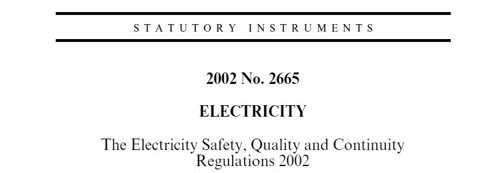
Setting the Standard (continued): A-Deviations
When drafting standards, CENELEC technical bodies will consider national requirements and generally try to accommodate as best they can. However, this is not always achievable. The national regulations may not be compatible with the proposal for an EN or HD, further to this the pace of development of a national regulation may not align with the timeframe of the development of a European standard.
Each CENELEC member has an obligation to implement every European standard by adopting the requirements at a national level and by withdrawing any conflicting national standards. If the content of a European standard conflicts with the national regulations of a CENELEC Member, some challenges may arise.
So that national requirements can continue to meet the requirements of an EN or HD, the CENELEC system includes a mechanism for identifying the content of a European standard that is incompatible with national requirements or legislation. This mechanism results in a derogation called an 'A-deviation'.
Examples of where A-deviations are justified include:
- products, service or practice specified by EN or HD which are banned in a given country;
- national requirements which are more demanding than, or conflicting with the EN or HD; and
- binding precedents and jurisprudence.
Where an A-Deviation is required, it is the responsibility of the relevant national committee to make a formal request to the associated CENELEC technical committee for an A-Deviation to be included in the relevant EN or HD and provide sound justification as to why the request has been made.
One example of this in the UK is where inclusion of a reference to the Electricity Safety, Quality and Continuity Regulations (ESQCR) in HD 60364.

The ESQCR are statutory (legal document) and therefore any EN or HD requirements that are conflicting or cannot be implemented in the UK unless there is an appropriate amendment to the statutory document. Therefore, the UK has an A-Deviation in CENELEC 60364-1 as below:
"Subclause Deviation - Regulation 8(4) of the Electricity Safety, Quality and Continuity Regulations 2002 (No. 2665)
United Kingdom
General
The above regulation prohibits consumers from combining the functions of neutral and protective conductors in their installations, i.e. consumers must not operate TNC systems or use CNE cables within their installations. The Regulations permit distributors to operate networks with the neutral and protective functions combined (regulation 9). Distributors' PME networks must be equipped with sufficient multiple earthing connections in order to minimise the risk of the combined neutral and protective conductor becoming disconnected from earth.
However, distributors must not offer connections to earthing terminals from PME networks for consumers' installations in caravans or boats."
Having this A-Deviation in HD 60364-1 means that the UK can continue to make appropriate references to ESQCR where relevant throughout BS 7671 without conflicting with the requirements of HD 60364.
Now that we have covered A-Deviations this completes the overview of the standards-setting process from an international level all the way down to a national level and in our case the development of BS 7671.
Remember, if you are interested in standards-setting and how it may affect your business and practice. Keep an eye on the BSI standards development portal https://standardsdevelopment.bsigroup.com/ where you can find the current DPC for section 722 of BS 7671 as well as any other standards available for public review. The proposed changes will be included in amendment 1 to BS 7671 18th Edition 2018.
